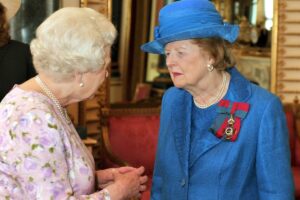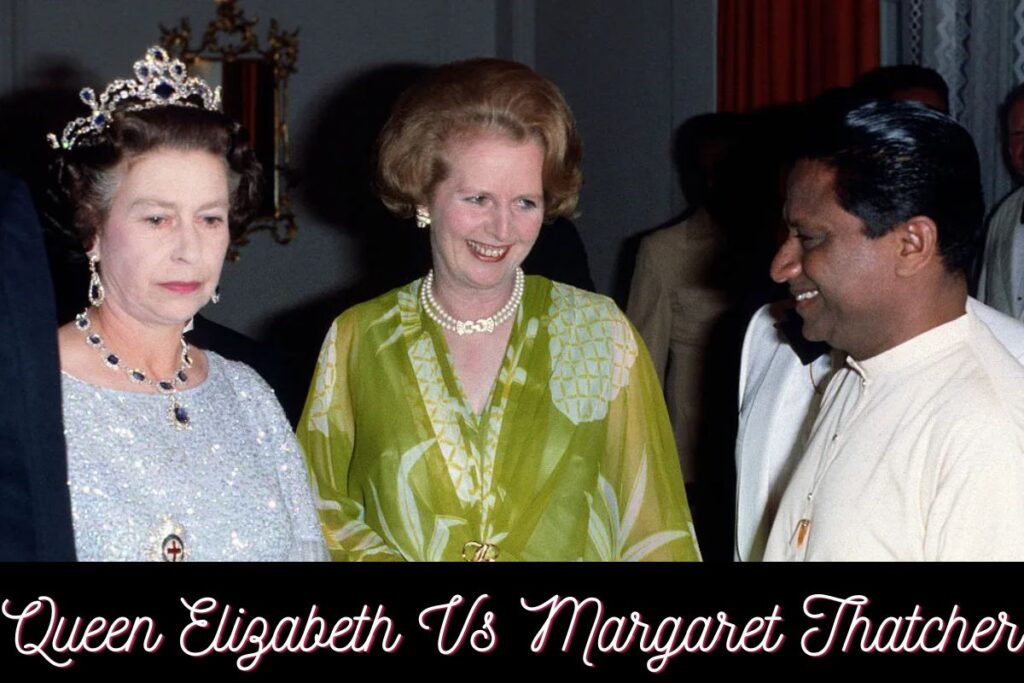Season 3, episode 8 of Netflix’s The Crown features the monarch making a potentially fatal error: she speaks her mind. In large part due to her refusal to support sanctions in apartheid-rattled South Africa, Prime Minister Margaret Thatcher has managed to ruffle Her Majesty’s generally immovable feathers. The Commonwealth is a group of countries (most of which were formerly British territory) committed to promoting democracy and human rights, but Thatcher is not a fan of the organization. King George VI and Queen Elizabeth II have a strong affection for the Commonwealth. Unfortunately, we’ve hit a dead end.
Under British law, the monarch cannot criticize the government or try to influence the people on political matters. In “48:1,” however, the queen is seen to have broken convention after a private dispute with Thatcher. The Sunday Times said, citing unnamed “aides” to the queen, that Her Majesty was “dismayed” by Thatcher’s policies, but The Associated Press reported that Buckingham Palace had denied the claim.
At the time, Michael Shea, a palace spokesman, issued a statement that read, “As with all previous prime ministers, the queen enjoys a relationship of the closest confidentiality with Mrs. Thatcher and reports purporting to be the queen’s opinions of government policies are entire without foundation.”
Does this mean there was never any sort of quarrel, to begin with? What we do know about the history of the Iron Lady and her monarch is outlined here.
Contents
From the Beginning, Their Relationship Was Awkward
Since she was 25 years old, Queen Elizabeth has met with prime ministers in her private audience room. Margaret Thatcher was the first woman to do so. This naturally set their connection apart from previous ones. “The palace deemed Thatcher vulgar, and the prime minister believed monarchy was inconsequential,” Dean Palmer writes in his book The Queen and Mrs. Thatcher: An Inconvenient Relationship. Thatcher had almost no sense of humor, while Her Majesty has always had what she calls “a dry wit,” and she loved to lecture, which the queen hated.
However, the most noticeable distinction between the two women was their social status. “Under Thatcher’s armor of self-belief and simple Grantham ideas were significant insecurities, many of them class related,” Palmer observed. Queen Elizabeth was a member of England’s upper class, and she carried herself, dressed, and communicated as such. The daughter of an alderman, Thatcher purportedly rose through the ranks without being exposed to the high society events depicted in The Crown. Palmer claimed that because of their very different upbringings, she “didn’t know how to treat the queen.”
According to Palmer, “[Thatcher’s father] believed that you had to pick yourself up by your bootstraps if you wanted to succeed in life.” The queen’s father, George VI, on the other hand, was dead set against any kind of change and thought that stability was the pinnacle of virtue. Their girls would be stuck with these fatherly beliefs. You have to know the man behind both of these women’s scenes.
Thatcher Was Generally Not the Warm-and-fuzzy Type
Thatcher was dubbed “the Iron Lady” in part because of her resoluteness, but partly because of the negative impression she gave off to many. “Margaret Thatcher is the most psychologically guarded of the world leaders I have interviewed,” wrote Gail Sheehy in 1989 for Vanity Fair. None of the fifty-five people interviewed for this story claimed to know her well. I was forewarned that the lady “never gets introspective; there’s just no time for that here; here, we deal in facts.”
The queen appeared annoyed by this rigidity. “The Queen was reputed to dread her weekly audience with her Prime Minister because Mrs. Thatcher was so stiff and formal,” John Campbell wrote in The Iron Lady: Margaret Thatcher, from Grocer’s Daughter to Prime Minister.
Thatcher’s work ethic was so extreme that it was infamous. According to her memoirs, she only slept about four hours a night after training herself to do so, and she thought that working all the time would make her and everyone around her happier.
The Prime Minister Displayed Her Power in a Way That Might Have Unnerved Queen Elizabeth
So, it’s hardly surprising that the PM used her authority with aplomb. Her politics were described as rigid, unbending, and, depending on your source, astonishingly indifferent to the disadvantaged. Thatcher was a skilled politician who was not frightened of controversy and always came ready for everything. Anyone she wanted might expect a challenge from her.
“[Thatcher] has hijacked the role of the royals by going to every tragedy site with a smoothly calculated publicity machine behind her,” Sheehy said in her profile of the former prime minister. More and more people are beginning to liken the prime minister to the monarch. Although they are nearly the same age, the commoner has begun to affect the royal “we,” as in “VYe have become a grandmother,” which was directed at the television cameras at the recent birth of her first grandchild. Broadcaster and columnist Anthony Howard has said, “Mrs. Thatcher has become the icon of the nation in the manner the queen is meant to be.”

The prime minister, on the other hand, may exploit her position to her advantage. Palmer said in his book that the queen has “more authority than she dares wield,” but is forbidden from becoming involved in politics. She has been able to get along well with most prime ministers because she has never been a disruptive force or a potential spoiler.
Follow our site serveupdate.com and get all the latest news.




